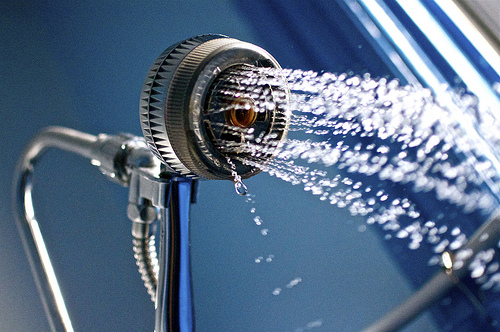Do you hate taking cold showers? Many households suffer from not enough hot water for various reasons. Perhaps you have quite a few people living under one roof, or someone in your household loves to take extremely long showers. Or maybe running your dishwasher or washing machine right before you take a shower drains the water heater. Many people consider installing a tankless water heater as a solution to the problem.
Before you take on the expense of a new water heater, you should first make sure the problem with your old water heater is not a matter of lack of servicing. Like anything else in your house, a water heater requires regular servicing. This involves draining it at least once a year to remove sediment buildup as well as removing and inspecting the anode rode to check for calcium buildup or corrosion. Also, insulating the pipes and the water heater itself can dramatically affect its performance, making purchasing a new water heater an unnecessary expense.
If after you have serviced your water heater you still experience problems with no having enough hot water, or if you regularly have quite a few visitors over at your house, you might find that installing a tankless water heater is a good choice. But before you rush out and have one installed, consider the following points.
Traditional water heaters suffer from what is known as standby loss. This is the heat that is lost while the water sits in the tank. Once the water temperature dips below the setting you choose, the heater kicks on and heats the water up some more. This can happen several times a day, meaning you pay money to have the water heated and reheated. With tankless systems the water is heated as you need it, meaning there is absolutely no standby heat loss.
But tankless water heaters have their drawbacks. One of the biggest concerns is that they cost significantly more, sometimes as much as three times what traditional water heaters cost. And since a tankless heater uses more natural gas or electricity at once, you might need to have larger lines or a new wiring setup installed by a professional, which can further increase the cost. A tankless water heater also needs a stainless steel exhaust pipe if the unit uses natural gas or propane, which can be expensive to have installed.
Before you make a final decision, there are some additional benefits to having a tankless water heater in your house. Depending on where you live, there might be a government rebate for purchasing a tankless water heater, helping bite down the cost. In general tankless heaters last about five to ten years longer than traditional water heaters, helping make up for the additional expense. A tankless unit also takes up considerably less space, with some units being able to be installed inside a cabinet or on a wall. In fact, there are some units that are designed to be installed outdoors. You do not run the risk of a flood like you do with a ruptured hot water tank. And finally, a tankless water heater can cut your utility bill by as much as twenty percent.
Laura Ginn knows that there are always decisions to be made when it comes to getting the best fuel economy from your home heating system. It is also important to make sure that you are getting the best prices from your energy provider, so use the energy comparison price website from uSwitch.com.
